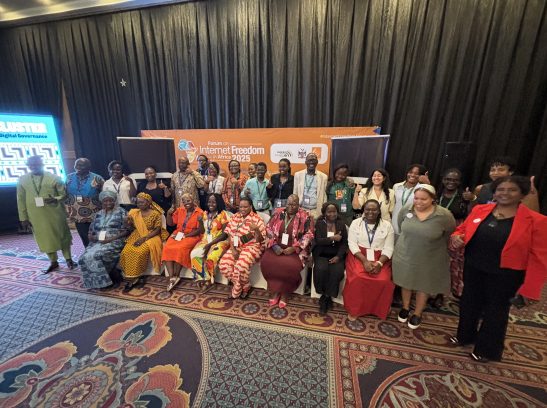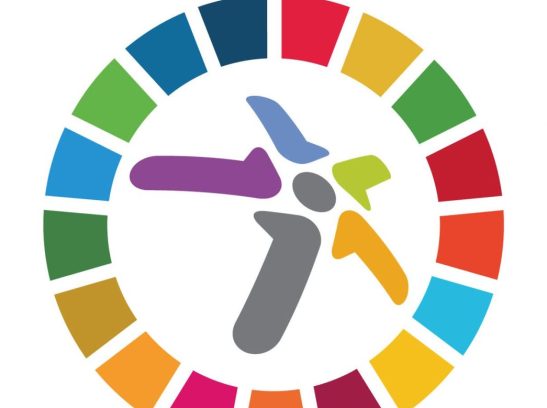In August AUDRi participated in the AI and Governance Conference in Thailand hosted by the Asia Centre and the 3rd DRAPAC (Digital Rights in Asia Pacific) in Malaysia. In these spaces we heard directly from civil society organizations and activists working in the region, with a particular focus on South East Asia. AUDRi coordinator Mrinalini Dayal shares her reflections from these two events.
It is pertinent to recognize the gendered nature of digital rights issues and concerns. Throughout the two conferences I attended, many people uplifted a gendered lens and shared case studies of how the major challenges affected women and girls disproportionately.
Among the concerns and challenges highlighted was the rise of surveillance and authoritarianism. Many attendees shared examples of governments using technology, including AI and facial recognition, to suppress the voice of activists and journalists in the region. This included both online suppression and other forms of violence, such as arrests and deportation. In a session on ‘gendered surveillance’ participants shared how women and other marginalised groups who considered ‘political’ face surveillance from the state, from tech platforms and from additional actors – usually family members such as husbands and fathers.
Human rights concerns
As countries in Asia scramble to utilise and integrate AI into various systems, human rights safeguards and considerations are largely missing from the design, development and deployment of this technology. Misinformation campaigns are running rampant and elections are being manipulated as AI through deepfakes, tech-facilitated gender-based violence targetting female politicians and public figures, and opaque governance systems. These contribute to an erosion of trust and the weakening of democracy in the region.
Additionally, rising digitisation has led to labour disruptions and human rights violations for gig workers, such as those working for delivery and other service app companies. AI and automation are leading to labour disruptions, mostly in manufacturing and service industries. These ‘low skilled jobs’ are often performed by women and other marginalised groups, meaning that these individuals and communities are disproportianetly affected.
In Bangladesh, technology is leading to mass lay-offs of women in the garment industry and the creation of new jobs related to the upkeep and maintenance of machines – jobs which are mostly performed by men due to gender stereotypes and the limited numbers of women in STEM.
Digital colonialism and the gender digital divide
The Asia Pacific region is very large and heterogeneous, and countries are at vastly different levels of digital infrastructure. Singapore and Malaysia are rapidly deploying AI while other countries, such as Timor Leste, face low internet penetration. The digital divide which exists between countries and affects groups such as women, rural communities, people with disabilities and indigenous communities, deepens levels of digital exclusion in the region, affecting representation of the region in the global digital ecosystem.
Concerns were raised around sovereignty in a context where infrastructure such as cloud storage, subsea cables and proprietary AI models and tech stacks are controlled by a small group, namely, tech companies and governments in the global north. The global majority is currently dependent on these players, and it was argued that the extractive nature of the relationship is creating a new form of colonialism. Additionally, the rise in data centers and emerging technology infrastructure has a large environmental impact, disproportionately affecting women and girls in the region.
Developing a movement for digital justice in Asia
What are the implications for AUDRi and others working on digital rights through a feminist and intersectional lens? We need a strong feminist movement in Asia with diverse allies and stakeholders advocating for a digital future through an intersectional lens – including honoring local knowledge and indigenous perspectives. There also is a need for engagement with regional mechanisms such as the ASEAN Intergovernmental Commission on Human Rights.
Inequalities in the design, governance, and use of AI and technology exacerbates existing power dynamics and hierarchies, and we need to ensure that all solutions, digital frameworks, governance and design must be approached with a gendered lens.
AURDRi’s Feminist Digital Principles outline the key areas of concern and reimagine a digital world where everyone enjoys the equal right to safety, freedom, and dignity. AUDRi is on a mission to strengthen the movement that already exists in the region through the creation of an Asia Cluster. Our regional clusters will work alongside the Global AUDRi movement to ensure that we are advocating for women and girls at national, regional and global levels.
If you are interested in joining the cluster please write to Mrinalini Dayal at mdayal@equalitynow.org.
We will be at FIFAfrica 2025 to launch AUDRi’s Africa Cluster! Look out for more details from us.





